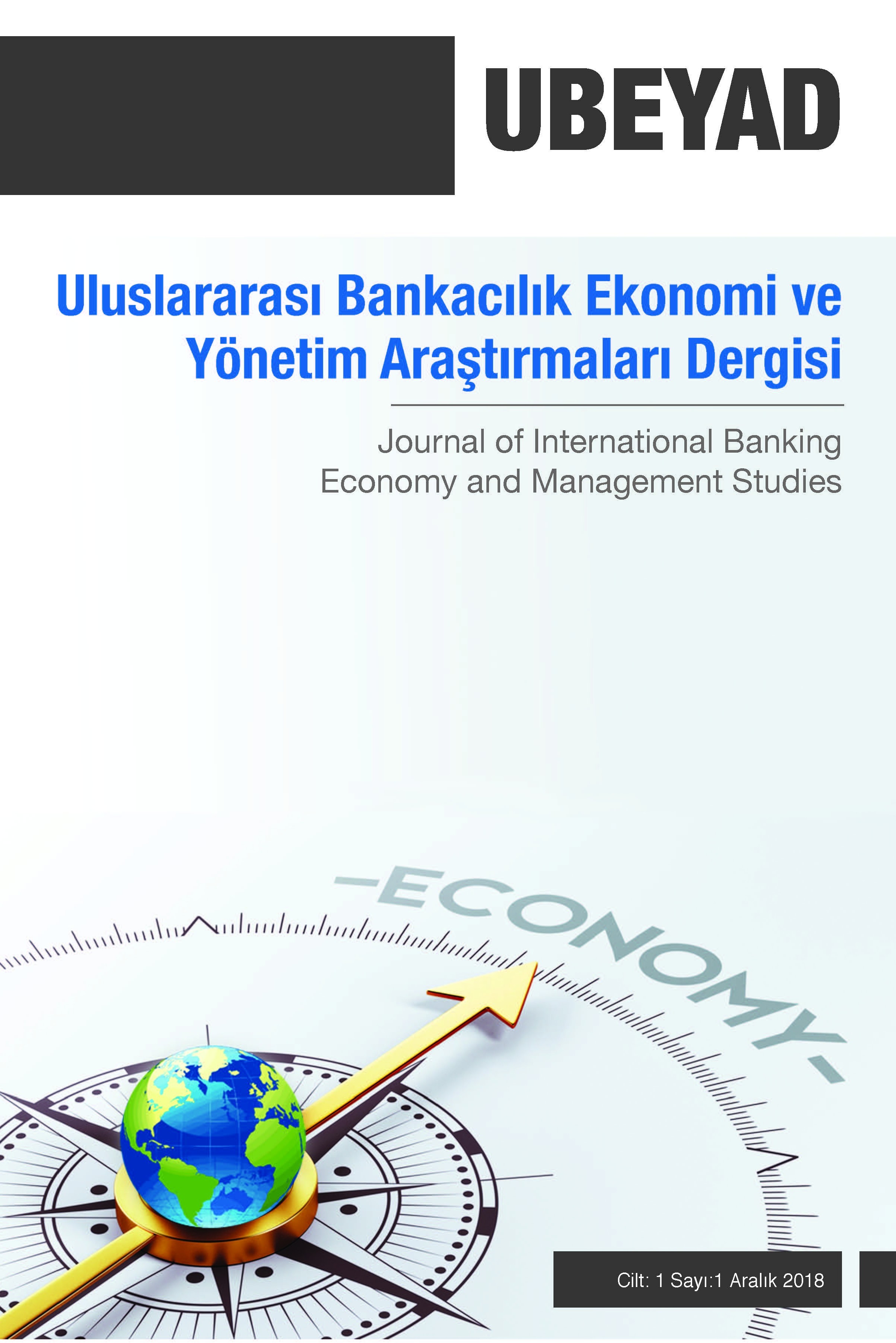YÖNETİM BİLGİ SİSTEMLERİNİN SAĞLIK HİZMETLERİNİN KALİTESİ ÜZERİNE ETKİLERİ: SALAH AL-DİN HASTANELERİNDE AMPİRİK BİR ANALİZ
Bilgi yönetim sistemlerinin hizmet kalitesine etkisi literatürde sıkça çalışılan bir konudur. Covid 19 pandemi süreci ile birlikte tüm dünyada sağlık hizmetlerine öncelik verilmeye başlanmıştır. Bu çalışma, Irak Cumhuriyeti'nde Salah al-Din Valiliği'ndeki hastanelerde sağlık hizmeti kalitesinin sağlanmasında yönetim bilgi sisteminin etkilerini göstermeyi amaçlamaktadır.
Araştırmanın amacına uygun olarak belirlenen araştırma problemi çoklu regresyon analizi kullanılarak analiz edilmiştir. Araştırmada kullanılan veriler anket yoluyla toplanmıştır. Araştırmaya yönetici veya sağlık personeli olarak görev yapan 194 çalışan katılmıştır. Araştırma sonuçları, yönetim bilgi sistemlerinin kullanım düzeyinin sağlık hizmetlerinin kalitesi üzerinde olumlu etkileri olduğunu doğrulamıştır.
Anahtar Kelimeler:
Yönetim Bilgi Sistemi, Sağlık Hizmetleri Kalitesi, Yönetim, Hastane, Irak
THE EFFECTS OF MANAGEMENT INFORMATION SYSTEMS ON QUALITY OF HEALTH SERVICES: AN EMPIRICAL ANALYSIS IN HOSPITALS IN SALAH AL-DIN
The effect of information management systems on service quality is a frequently studied subject in the literature. With the Covid 19 pandemic process, health services have started to be prioritized all over the world. This study aims to show the effects of the management information system in achieving the quality of health service in hospitals in Salah al-Din Governorate - in the Republic of Iraq.
The research problem determined in accordance with the purpose of the research was analyzed using multiple regression analysis. The data used in the study was collected by survey. 194 employees who work as managerial or medical personnel participated in the research. The research results confirmed that the usage level of management information systems had positive effects on health services quality.
Keywords:
Management Information System, Health Services Quality, Management, Hospital, Iraq,
___
- Al-Hussein, M. (1999). An integrated information system for crane selection and utilisation. Concordia University.
- Al-Shurafa, A. (2004). Users' Perspectives on the Computerized Health Management Information System in the Ministry of Health Hospitals in the West Bank - Palestine. Master Thesis, Al. Quds. University.
- Al-Taweel, E., Al-Jalili, A., & Wahhab, R. (2010). Possibility To Establishment The Dimensions Of Quality Health Services Study in Group Selected From Hospitals in Nineveh. Tikrit Journal of Administration and Economics Sciences, 19(6), 9 - 38.
- Andre, S. L. (2019). Information System to Enhance Medical Services Quality in Indonesia. International Journal of Electrical and Computer Engineering, 9(3), 2049-2056.
- Ayele, W., Biruk, E., Habtamu, T., Taye, G., Tamire, M., & Addissie, A. (2021). Data quality and it’s correlation with Routine health information system structure and input at public health centers in Addis Ababa, Ethiopia. Ethiop. J. Health Dev., 35(1), 33-41.
- Badri, M., Attia , S., & Ustadi , A. (2008). Testing not-so-obvious models of healthcare quality. Int J Health Care Qual Assur., 21(2), 159 - 174.
- Benbya, H., Pachidi, S., & Jarvenpaa, S. (2021). Artificial Intelligence in Organizations: Implications for Information Systems Research. Journal of the Association for Information Systems, 22(2).
- Dalgıç, A. (2013). Hizmet sektöründe hizmet kalitesinin ölçümü ve hizmet kalitesini etkileyen faktörler. Adnan Menderes Üniversitesi S.B.E.
- Donabedian, A. (2005). Evaluating the quality of medical care. Milbank Mem. Fund., 83(4), 691-729. doi:10.1111/j.1468-0009.2005.00397.x
- Gadalla, R., & Ahmed, M. (2021). Health Information System and Their Impact on The Quality of Healthcare at Benghazi Medical Center. Alq J Med App Sci., 4(1), 69-72.
- Gooding, S. (1995). Quality, sacrifice, and value in hospital choice. J. Health Care Mark., 15(4), 24-31.
- Headly, H. E., & Miller, S. J. (1993). Measuring service quality and its relationship to future consumer behavior. J. Health Care Mark., 13(4), 32-41.
- Lee, S., Choi, K., Kang, H., Cho, W., & Chae, Y. (2002). Assessing the factors influencing continuous quality improvement implementation: Experience in Korean hospitals. International Journal for Quality in Health Care, 14(5), 383-391.
- Muya, O. W., & Kimando, L. (2018). An Assessment Of The Influence Of Informatıon System, Leadershıp And Governance On Servıce Qualıty In Publıc Hospıtals In Kıambu County. International Academic Journal of Human Resource and Business Administration, 3(4), 315-331.
- Oppong, E., Hinson, R., Adeola, O., Muritala, O., & Kosiba, J. (2021). The effect of mobile health service quality on user. Total Quality Management & Business Excellence, 32(1), 177-198.
- Polluste, K., Habicht, J., Kalda, R., & Lember, M. (2007). Quality Improvement in the Estonian Health System - Assessment of Progress Using an International Tool. International Journal for Quality in Health Care, 18(6), 403 - 413.
- Prakash, G. (2019). Understanding service quality: insights from the literature. Journal of Advances in Management Research, 16(1), 64-90.
- Prakash, G. (2019). Understanding service quality: insights from the literature. Journal of Advances in Management Research, 16(1), 64-90.
- Purcărea, V., Gheorghe, I., & Petrescu, C. (2013). The Assessment of Perceived Service Quality of Public Health Care Services in Romania Using the SERVQUAL Scale. Procedia Economics and Finance, 6(2), 573-585.
- Reidenbach, R. E., & McClung, G. W. (1999). Managing stakeholder loyalty: when satisfaction is just not enough. Mark. Health Serv., 21, 21-29.
- Taylor, S. A. (1994). Distinguishing service quality from patient satisfaction in developing health care marketing strategies. Hosp. Health Serv. Adm., 39(2), 221-236.
- Veronika, R., & Jayathilaka, P. (2021). Effects of Digital Technologies on Health Service Delivery and Quality Management in Sri Lankan Health Care Systems. KDU International Research Conference, (s. 72-79).
- Zineldin, M. (2000). Total relationship management (TRM) and total quality management (TQM). Managerial Auditing Journal, 15(1), 20-28.
- Zineldin, M., Camgoz Akdag, H., & Belal, M. (2012). Total Relationship Management (TRM) and 5 Qs Model as New Management Techniques: A Comparative Study for a Knowledge-Intensive Sector. International Business and Management, 4(1), 1-17.
- ISSN: 2667-5358
- Başlangıç: 2018
- Yayıncı: Mehmet APAN
Sayıdaki Diğer Makaleler
Arkan Talıb RASHID, Serhan GÜRKAN
SAĞLIK PERSONELLERİNİN İYİLEŞEN HASTA SAYISI ÜZERİNDEKİ ETKİSİNE YÖNELİK AMPİRİK BİR ARAŞTIRMA
ALTERNATİF FONLAMA YÖNTEMİ OLARAK LEASING SEKTÖRÜ: TÜRKİYE FİNANSAL KİRALAMA PİYASASI ÖRNEĞİ
DEMOGRAFİK ÖZELLİKLER BAĞLAMINDA ÇALIŞANLARIN İŞ GÜVENCESİ ALGISI
Hüsnü Akın ÖZCAN, Mehmet Murat TUNÇBİLEK
YENİLENEBİLİR ENERJİ ÜRETİMİNDE KAMU POLİTİKALARININ ÖNEMİ: G7 ÜLKELERİ ÖRNEĞİ
Muharrem AFŞAR, Başak ÖZARSLAN DOĞAN
FİNANSAL OKURYAZARLIĞIN GİRİŞİMCİLİK ÜZERİNE ETKİSİ: ÜNİVERSİTE ÖĞRENCİLERİ ÜZERİNDE BİR ARAŞTIRMA
